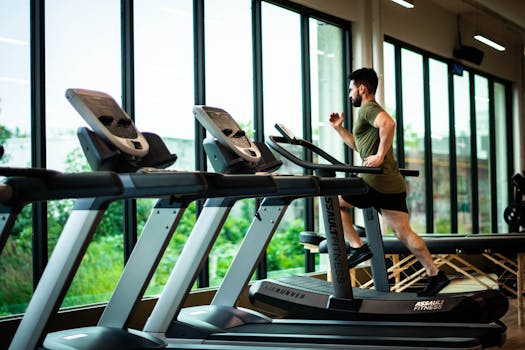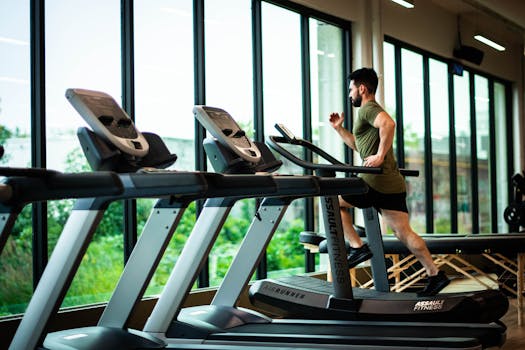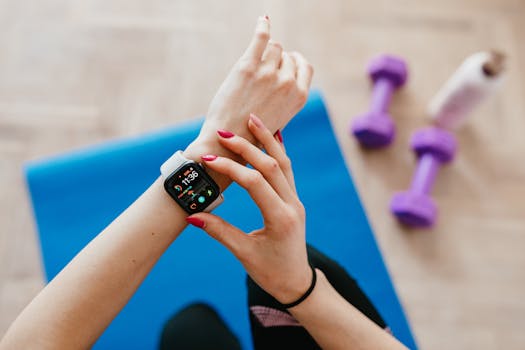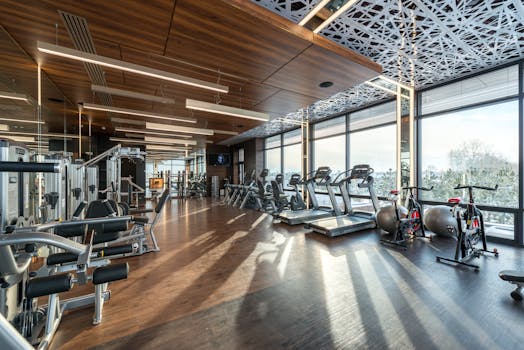
Table of Contents

- Smart Home Devices
- Wearable Technology
- Health and Fitness Apps
- Smart Kitchen Appliances
- Virtual Reality and Meditation
Smart Home Devices

In recent years, smart home technology has revolutionized the way we live. From smart thermostats that learn your preferences to security cameras that provide real-time monitoring, these devices not only enhance comfort but also improve security and energy efficiency. Smart home systems like Google Home and Amazon Alexa allow for seamless integration of multiple devices, enabling users to control everything from lights to door locks with a simple voice command.
Moreover, smart home devices can lead to significant energy savings, as they optimize heating and cooling based on your daily habits. For instance, a smart thermostat can adjust the temperature when you’re away from home, ensuring that energy isn’t wasted. With the rise of smart home technology, homeowners can experience a more convenient and efficient lifestyle.
Wearable Technology

Wearable technology has made significant strides in improving lifestyle and health management. Fitness trackers and smartwatches, such as the Fitbit and Apple Watch, provide users with real-time data on their physical activity, heart rate, and sleep patterns. This information empowers individuals to take control of their health and set achievable fitness goals.
Furthermore, wearables can monitor vital signs and alert users to potential health issues, making them invaluable for preventative health care. With features like ECG monitoring and fall detection, these devices can be lifesaving. As technology continues to evolve, we can expect even more sophisticated wearables that offer insights into our health and well-being.
Health and Fitness Apps

Mobile applications have transformed the landscape of health and fitness by providing tools for tracking nutrition, workouts, and overall wellness. Apps like MyFitnessPal and Lose It! help users manage their dietary intake, while workout apps such as Nike Training Club offer guided exercises tailored to individual fitness levels.
Additionally, mental health apps like Headspace and Calm provide mindfulness and meditation resources, helping users reduce stress and improve their mental well-being. By incorporating these apps into daily routines, individuals can cultivate healthier habits and achieve their personal wellness goals.
Smart Kitchen Appliances

The kitchen is where many of the latest technologies are making a significant impact. Smart kitchen appliances, such as refrigerators that can create shopping lists or ovens that can be controlled remotely, are changing the way we prepare and enjoy meals. These devices not only save time but also enable healthier cooking practices.
For example, smart slow cookers allow users to prepare meals with minimal effort, while smart scales can help with precise ingredient measurements. By leveraging technology in the kitchen, home cooks can enhance their culinary skills and enjoy more nutritious meals.
Virtual Reality and Meditation

Virtual reality (VR) is emerging as a powerful tool for relaxation and mental health enhancement. VR meditation apps transport users to tranquil environments, allowing for immersive relaxation experiences that can help reduce anxiety and stress. These technologies provide a unique way to practice mindfulness, making meditation accessible and engaging.
As VR technology continues to develop, we can anticipate even more innovative applications in mental health, including virtual therapy sessions that can reach individuals who may not have access to traditional therapy. By embracing these technologies, individuals can significantly enhance their mental and emotional well-being.




